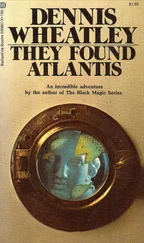Two of Zeus's other children who played a very prominent part in the lives of gods and men were the twins, Apollo and Artemis. Their mother, Leto, was the beautiful daughter of a Titan, and when it got around that Zeus had made her preg. Hera became hopping mad. She threatened any country that sheltered Leto with every sort of calamity, so the poor girl traipsed all round the eastern Med. begging to be taken in, until Poseidon took pity on her and provided her with a floating island on which to have her babies. Later he anchored it to the sea-bottom; it was called Delos and became, after Delphi, Apollo's most famous shrine, because he was born there.
Finding the equivalent of a bed in a maternity ward was by no means the end of Leto's troubles. When her time came she could not do her stuff because that bitch Hera had forbidden Ilithyia, the goddess of Childbirth, to leave Olympus. All the other gods and goddesses hurried to Delos with fruit, flowers and sympathy, but their standing around holding hands didn't do any good. For nine days and nights Leto suffered intolerable agony. Then kind auntie Themis came to the rescue and, somehow, got Ilithyia down from Olympus to Delos.
Even then Hera would not let up, and sent Python to destroy Leto and her twins. Fortunately for all concerned Themis had brought some ambrosia and nectar along in her mother's-bag and she fed it to the new-born Apollo. Instantly he leapt from his swaddling clothes a full-grown man and chased the huge serpent to Delphi, where he slew it and set up a temple to himself. It was in connection with this event that the High Priestess who afterwards prophesied there was known as the Pythoness.
Apollo was the best-looking and most popular of all the gods. He was the Lord of Light, and Helios, who drove the chariot of the Sun, was only one of his henchmen. He caused the crops to ripen, protected the flocks and herds, and was the first god to go in for healing. He was the inventor of music and, as patron of the arts, was attended by the nine Muses. In addition he was willing to tell people's fortunes at his Oracles. So you can see what a useful god he was to be on the right side of.
Artemis, known to the Romans as Diana the huntress, was a decidedly hearty type. Like her twin brother she shed light, but Selene, the Moon goddess, acted as stand-in for her. This enabled her to spend most of her time in the woods, where she went about dressed in a kilt and attended by a bevy of hockey-playing types known as the Pleiades. She was a fanatical prude and so strongly disapproved of parlour games that, when the great hunter Orion made a pass at her, she shot him with one of her deadly arrows. An unfortunate chap called Actaeon fared even worse. One hot day when he was out seeing what he could get for the pot, he happened to come upon her just as she had slipped off her kilt to take a dip in a pool. Before he could even take his eyes off her she had turned him into a stag and had him torn to pieces by his own hounds. She had no mercy either on her sport-loving hoydens, if any of them allowed themselves to be picked up and taken behind the bushes. To have bumped them off just because they had had a little fun seems to me very unfair because, however chaste you may be yourself, it's not right to be beastly to other people who feel differently.
Hermes, the Roman Mercury, was the son of Zeus by Maia, the eldest of Artemis's troop of huntresses. I bet the goddess was furious with her papa for having done the dirty on one of her muscular virgins, but evidently she couldn't do anything to prevent it. Zeus made this son the Messenger of the Gods, so he wore winged sandals and wings in his tin hat, just as you often see his picture on postage stamps. As he got around a lot, that naturally led to his becoming the god of Travel. In those days there were no Hellenic cruises on which people went just for pleasure; travel meant going places on business, so Hermes was also the patron of Commerce. That, of course, included cattle, as in ancient times herds largely represented wealth. But he was a bit of a bad hat, and the very day he was born he took to stealing. His first exploit was to drive off fifty heifers from a pedigree herd of which Apollo was in charge, and when accused of the theft he refused to come clean. Luckily for him, while on this raid he had found a tortoise and turned its shell into a lyre. Apollo was so pleased with this new musical instrument that he iorgave his baby brother and even gave him a magic wand to play with. Hermes became a very active glib-tongued young rogue. He was the patron of thieves, athletes and inventors, and himself invented the alphabet. He had a sense of humour, too, and was always playing tricks on his relations. At various times he stole Poseidon's trident, Artemis's arrows and Aphrodite's girdle. But he must have had a lot of charm, for they always forgave him and he became the pet of the family.
Dionysus was Zeus's son by Semele, a daughter of King Cadmus. He was the god of Wine and went about crowned with a wreath of ivy and laurel and with bunches of grapes dangling from his ears. He was frightfully keen on letting people know what a jolly good drink wine is, so he became his own representative and travelled all over the place giving vine roots to anyone he could induce to plant them. He even went as far as India, and brought back with him a team of tigers to draw his chariot. Apart from his sales campaign he didn't do much except preside over revels as a rather cynical host. Like Artemis he had a number of constant companions. The chief of these was Silenus, who had been his tutor. This old fellow followed him round rolling from side to side on the back of a donkey, because he was always tight, but he was incredibly wise and could foretell the future. The rest of Dionysus's set consisted of goat-footed Satyrs and a crowd of lecherous women known as Bacchantes. They all gave the glad hand to anyone who was ready to join in their fun but could turn very nasty to people who refused. Anyone like St Paul would have got very short shrift from them. They danced in a drunken frenzy round spoil-sports like him, then tore them in pieces.
Pallas Athene was another virgin goddess and an extremely powerful one. The gentle reader will recall that Zeus swallowed his first wife Metis when she was already with child. Evidently he could not digest them because one day he got a most frightful headache. Apparently Metis's baby had gestated, or whatever you call it, and gone to his head. To relieve the pain Hephaestus took what seems to me rather a drastic measure; he crowned the old boy with an axe. However, it did the trick. Out of his split skull sprang Pallas Athene fully grown and fully armed. She was very keen on arts and crafts and everything to do with women in the home. But her most important role was as a protectress of cities into which she had introduced order, law and justice, and, having been conceived by Metis, she was much the wisest of the goddesses.
Hera was even more annoyed with Zeus for having a child off his own bat, than by his seducing all sorts of not too unwilling pretty strumpets; so she decided to see what she could do by herself.
Hephaestus was the result of her effort, but she bungled things badly. He was born lame in both legs and such an ugly little bag of bones that in a savage rage she threw the poor mite out of heaven. A Sea Nymph, named Thetis, rescued him and brought him up in her grotto, where he taught himself to make all sorts of lovely and ingenious toys. Then, wishing to get a bit of his own back on his mama, he sent her a beautiful golden throne. Hera was delighted, but is was the original of those Renaissance contraptions on which chaps like the Borgias used to invite their guests to sit before cutting their throats. The moment Hera sat on it the arms flipped across her and there she was, caught like a bird in a snare. All the other Immortals had a go at freeing her but none of them could, so Hephaestus had to be sent for. His price for pressing the secret spring that would let his mama out was that one of the prettiest goddesses should consent to become his wife. That being agreed upon, mother and son decided to let bygones be bygones and he.was made Blacksmith to the gods with the Cyclopes as his assistants and a forge in Mount Etna. It was he who supplied Zeus with thunderbolts and forged arms and armour of all kinds for his family, as well as building palaces for them, will see mod. cons, and lots of gadgets. Very ungratefully, I think, owing to his limp, his ugliness and his begrimed appearance, the others used him as their butt, and whenever he visited Olympus they made dirty cracks at him. Nevertheless, it was Aphrodite, the loveliest goddess of them all, who agreed to become his wife.
Читать дальше












